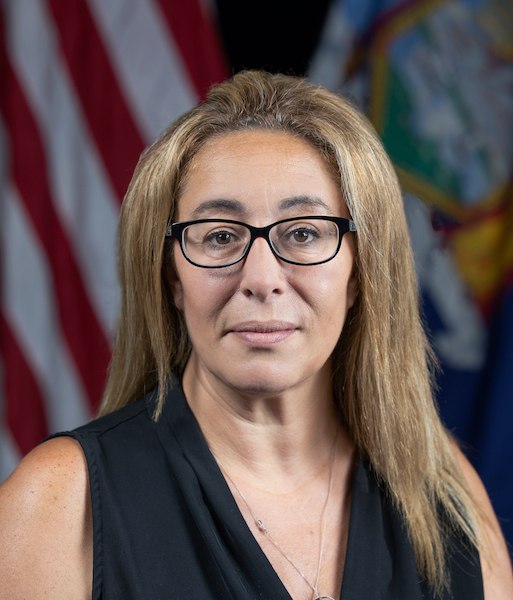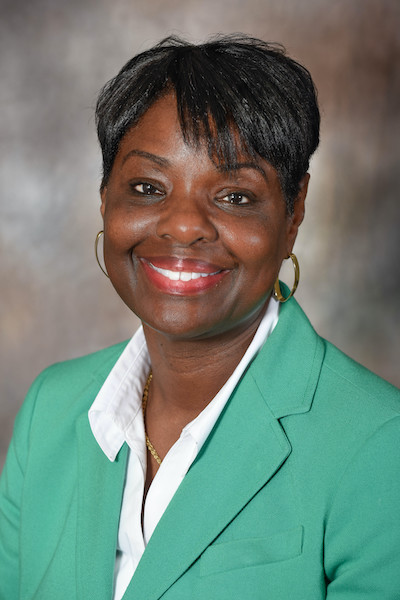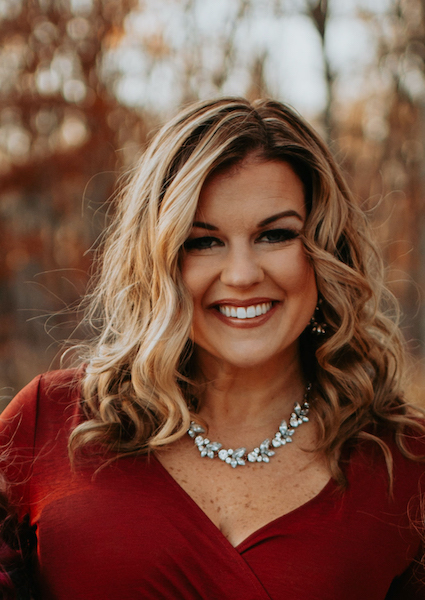Last fall, Kamala Harris became the first woman to be elected vice president of the United States of America. In the same election, state Senate Majority Leader Andrea Stewart-Cousins – the first woman and first woman of color to lead a majority conference in the state Legislature – won enough races to secure a veto-proof supermajority. More recently, Stewart-Cousins has called on Gov. Andrew Cuomo to resign in the face of multiple allegations of sexual harassment and a failure to disclose the number of nursing home deaths attributable to COVID-19. State Attorney General Letitia James launched an independent investigation into the governor. Although Cuomo has refused to resign, his immediate successor would be Lt. Gov. Kathy Hochul, while James herself would be well positioned to replace Cuomo more permanently.
While these high-profile women are leading the way, there are plenty of women in government, politics, business and the nonprofit sector who are blazing trails of their own. City & State’s annual Above & Beyond awards recognize a truly outstanding group of women, including civil rights leaders, candidates for elected office, and groundbreaking innovators.
Profiles by Jana Cholakovska, Kimberly Gonzalez, Madeline Lyskawa and Erica Scalise
Deborah Archer
President, American Civil Liberties Union
.jpg)
Growing up in Connecticut as the child of Jamaican immigrants, Deborah Archer became acutely aware of the evils of racism from a young age. She recalls the day her family’s property was vandalized as a turning point in her understanding of what it means to be Black in America.
“I wanted to fight against the racism that drove my very hardworking parents from our home and that I would continue to experience throughout my life,” she says. “I thought being a lawyer would do that, but no one had a blueprint or path I could follow.”
After working as a legal fellow at the American Civil Liberties Union over two decades ago, Archer’s path became a blueprint of success. This year she became the ACLU’s national board president, making history as the first Black person in the organization’s 101-year history to be elected to the position.
Archer, who is a professor at New York University and co-faculty director of the Center on Race, Inequality, and the Law at New York University School of Law, has also served as assistant counsel at the NAACP. She also runs the law school’s Civil Rights Clinic that investigates alleged police misconduct.
Despite Archer’s impressive resume, it’s her humility that defines her. “When people in the Black community experience success in our lives, we often say that we’re our ancestors' wildest dreams,” she says of her accomplishments. “Every time a Black woman achieves and rises to leadership opportunities, it honors the Black women who have come before her.”
Olga Baez
Founder and Executive Director, StriveHigher Inc.
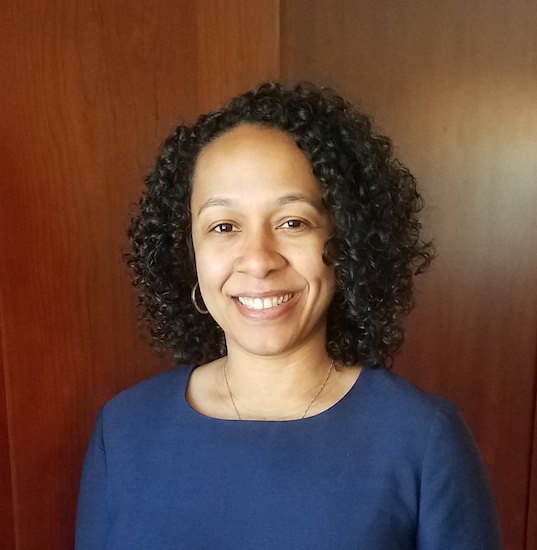
Olga Baez moved to the Bronx from the Dominican Republic when she was eight years old. When it was time to leave for college, she chose Marymount in Tarrytown, because she wanted to “experience something outside” her borough. Two years into her undergraduate studies, though, the college was acquired by Fordham University and moved to its current campus right across from her former high school. The Bronx, it seemed, needed her back home.
Since graduating in 2005, Baez has worked at Fordham as an administrative assistant. In the meantime, she obtained two master’s degrees: one in school counseling and another in nonprofit management. Throughout the past 15 years, she has seen a need for a comprehensive approach to education – especially when it comes to Black and Latino students whose graduation rates have trailed behind those of white and Asian students. And so, she launched StriveHigher, a nonprofit organization offering career, financial literacy, wellness and educational guidance.
“A lot of people told me to just focus on one or two things, in order to make it easier, more successful,” she says. “But I felt that when it comes to a child's development we need more than one resource.”
For Baez, education is multifaceted and requires a hands-on approach. “Instead of just talking about college, we actually go on a college tour,” she says. “Instead of just talking about coding, we go to the Microsoft store and do a workshop there. It’s twofold: They get to leave the Bronx and get a hands-on opportunity.”
Stephanie Báez
Vice President, Communications and Public Affairs, Global Strategy Group
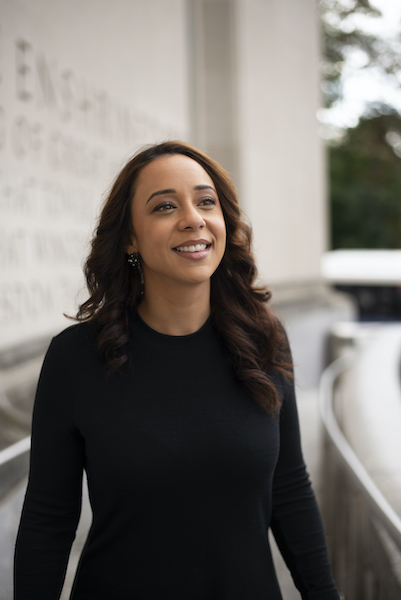
For Stephanie Báez, watching the TV show “The West Wing” and its fictional White House press secretary, C.J. Cregg, made her want a career in the political sphere – and ever since she stumbled upon some press responsibilities while working for then-Rep. Anthony Weiner on Capitol Hill, she’s been hooked.
Báez, who has since done public affairs and communications work for a number of New York organizations and elected representatives, last year joined Global Strategy Group, a leading political consulting and polling firm. She volunteers regularly for Meals on Wheels and Union Settlement. “I've always tried my best to find roles where I can incorporate the professional aspects of the job, but also make sure I can still break away from my desk and get out to the streets and actually talk to people, because that's how you really learn what's on people's minds and how to address them from a communication standpoint,” Báez says.
Báez’s favorite project has been the NYC Ferry launch that she worked on during her nearly four-year tenure as a top public affairs staffer with the New York City Economic Development Corporation. While developing the project, she constantly updated New Yorkers on the progress. “That will have a lasting memory in New York City and when I get to see the boats on the harbor, whether I’m on the FDR or crossing a bridge,” Báez says, “I always smile to myself because I know I was part of that.”
Paula Bailey
Executive Vice President, Grant Associates
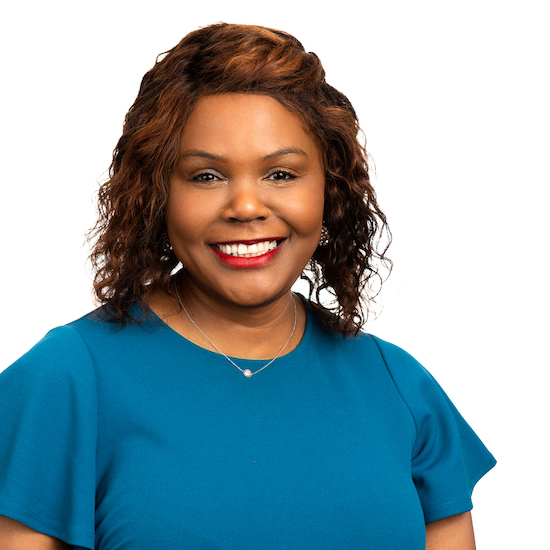
After graduating from Cornell University, Bailey began working as a caseworker with the New York City Administration for Children’s Services, where she saw the impact of poverty on families. To combat this, she co-founded Grant Associates with two other women in 1997, and since then the organization has been working with community stakeholders on building economic opportunities and security for low-income people through employment. According to Bailey, the workforce development company has assisted over 1 million people in finding employment and now operates in multiple states.
One of the first programs found jobs for 3,000 individuals who had been through the criminal justice system. “At a time when employers didn’t want to hire people with those backgrounds, we were able to work to place people in private sector jobs,” Bailey says. During the COVID-19 pandemic, Bailey and her team moved all their services online while aiding more individuals who lost jobs due to the economic shutdown.
Her inspiration to aid others and tackle socioeconomic inequality is fueled by being able to create a greater impact through individuals. “Early in my career, I used to work with people on public assistance and I used to see folks who would come into the office with their face downcast,” Bailey says. “I saw such a big difference after they were able to acquire employment. They would be coming, or I would be going out to meet them at their jobs or support them, to see the change a job made for someone, or a career, that doesn’t get old at all.”
Lisa Beatha
Director of Veterans Affairs, City University of New York
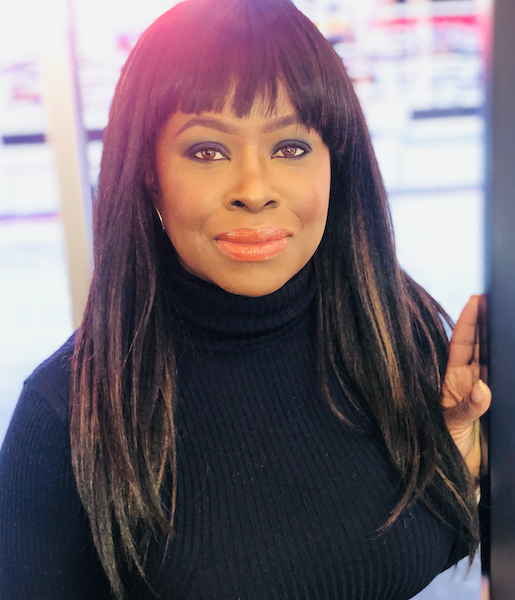
Lisa Beatha began serving in the U.S. Army during college to help out with her tuition, while also working part-time jobs in higher education. She interned for WSIA 88.9 FM, the student-run radio station at the College of Staten Island, a City University of New York institution. “It was a very kind of symbiotic relationship with rules, with goals, with meetings,” Beatha says. “I couldn’t believe that there was such a thing that existed.” She has been inspired by that welcoming community and structure ever since.
Beatha went on to become an English adjunct lecturer for CUNY and assistant registrar for transfer evaluations at the College of Staten Island, where she evaluated military veteran transfer credits. In her present role, Beatha aids and advocates for the more than 3,000 veterans who attend CUNY. She prides herself on the achievements of those veterans and past interns, three of whom have been hired in positions at CUNY campuses to support veteran services.
Beatha works with veterans who deal with a variety of challenges ranging from being a mother in the military to having PTSD or sexual trauma.“Knowing that it's only 1% or less of the population nationally that ever serves, knowing the depth of the sacrifice and being a part of that community where I have not faced as many challenges ... it’s hard not to take this job very seriously or to be motivated to constantly learn how to pivot and do your best to support,” Beatha says.
M. Tracey Brooks
Partner, Shenker Russo & Clark
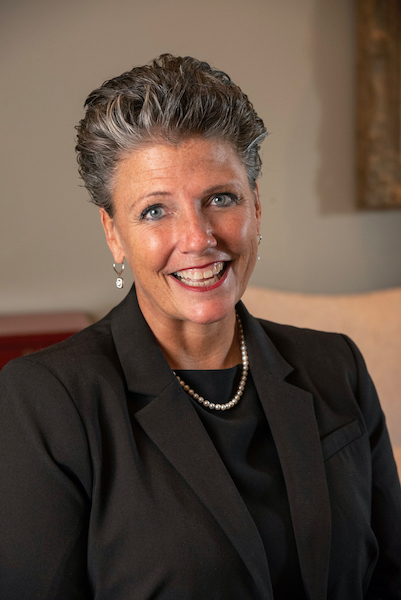
M. Tracey Brooks’ upbringing centered around volunteering, so when she graduated from Le Moyne College, she went back to her roots. She spent a year in a volunteer service corps working with pregnant and parent teenagers. Soon after, she worked as a paralegal and came to see law as a way to advocate for change through policy, which motivated her to attend Albany Law School. She ran for state Assembly, worked for then-Sen. Hillary Clinton, and ran for Congress. After her campaigns did not work out, she turned to another position she coveted in the capital – running Planned Parenthood’s New York advocacy work. “That position had opened up and the women who had it before me were some of my greatest mentors,” Brooks says. “And that’s when I almost came full circle.”
For seven years she was president and CEO of Planned Parenthood Advocates of New York, where she fought to provide health care to women across the state. Brooks says one of her proudest achievements was mentoring two women in family planning to succeed in their careers and personal lives, which resulted in “truly fulfilling, long-lasting impacts.”
Brooks serves on a variety of community boards, through which she supports several schools and advocates for women and foster children. “Whenever someone says that a person with a shallower voice didn’t have an opportunity, I felt it incumbent to find that opportunity and make sure that it could happen,” Brooks says. “I do believe in leveling the playing field.”
Courtney Bryan
Executive Director, Center for Court Innovation
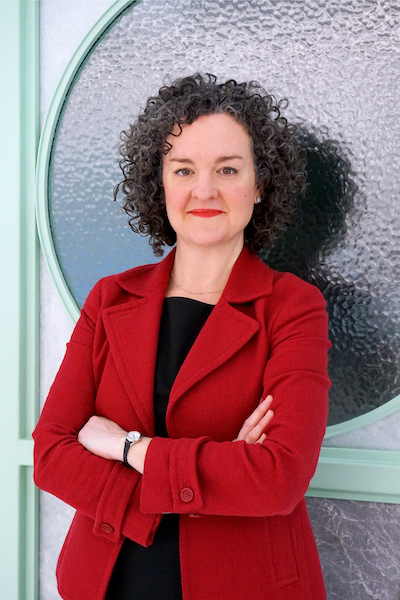
Rikers Island, New York City’s massive jail complex, is set to be shut down, a step that Courtney Bryan helped set in motion. In 2016, when calls for the jail’s closure were being made by then-New York City Council Speaker Melissa Mark-Viverito, Bryan was a part of former Chief Judge Jonathan Lippman’s Independent Commission on New York City Criminal Justice and Incarceration Reform, which set out to study if and how the city could close Rikers Island. As the commission’s staff director, she and her team created a road map in 2017 for its closure.
“That work really helped to support the call that advocates have been making for many, many years, and communities have been making for years that Rikers Island was irreparable, it needed to be closed and that we could imagine a city and a justice system that incarcerated far fewer people,” Bryan says.
Bryan has been battling for criminal justice reform since graduating from Temple University School of Law. Her formative years were spent working as a project attorney at the National Clearinghouse for the Defense of Battered Women, based in Philadelphia, where she worked to aid women who were charged with crimes connected to their abuse. In 2020, she was named to lead the Center for Court Innovation, an organization that tests innovative approaches to reducing incarceration.
“It's really through individual stories and people who inspire me, just ordinary New Yorkers and folks around the country who are impacted by the work that we (do) … and are looking to our organization as one of many who are trying to build a better society,” Bryan says.
Tiffany Cabán
National Political Organizer, Working Families Party
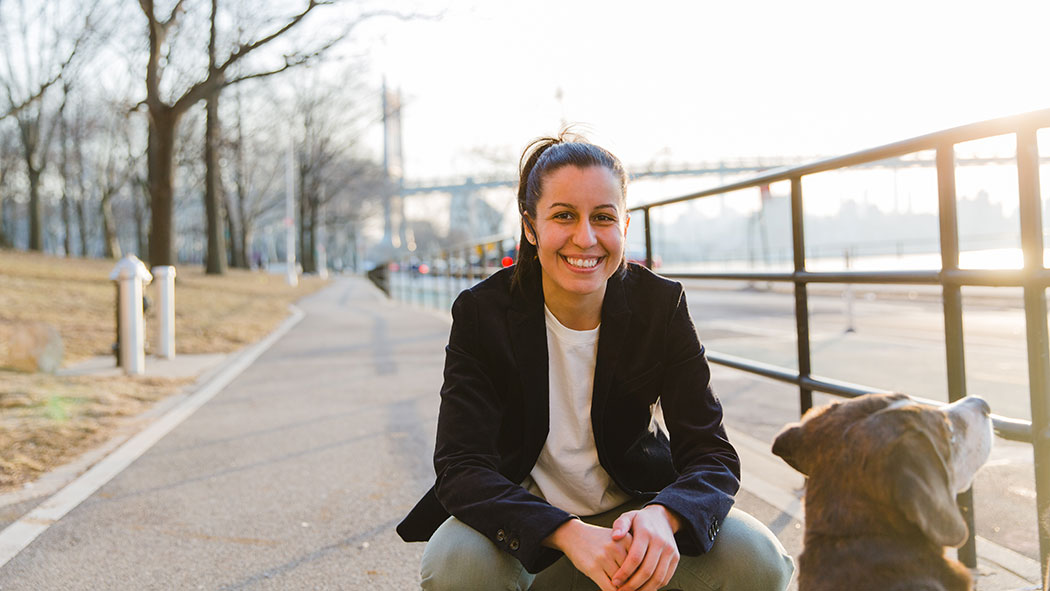
Tiffany Cabán has worn many hats in the fight for a more equitable New York.
Through her work as a public defender, a candidate for Queens district attorney and an organizer with the Working Families Party, Cabán’s message hasn’t changed. “Politics is about people – not bad people or good people – it’s just people,” she says. “The reality is that there are widespread, inequitable systems and rampant disinvestment, so it’s really about building communities that are healthy, safe and free of state-sanctioned violence.”
As an organizer with the Working Families Party, Cabán is developing a more robust training program to provide state parties with the opportunity to run campaigns, pass progressive legislation and dismantle the prison industrial complex.
She’s also back on the campaign trail, running to represent New York City Council District 22, following a high-profile Queens district attorney contest she narrowly lost in 2019. “I’m calling for a paradigm shift that equalizes public health and public safety,” she says. Cabán says she’s seeking office again because she understands that the work continues, recalling her DA platform, which included positions such as decriminalizing sex work – something she’s especially proud of.
She says queer people of color are her biggest inspiration to keep fighting. “It’s about bringing your whole self to politics,” she says. “Because of who you are, how you interact with systems that were not designed to serve you – that marginalize or oppress you – you are most able to identify the problems within those systems.”
Connie Cahill
Managing Partner, Barclay Damon
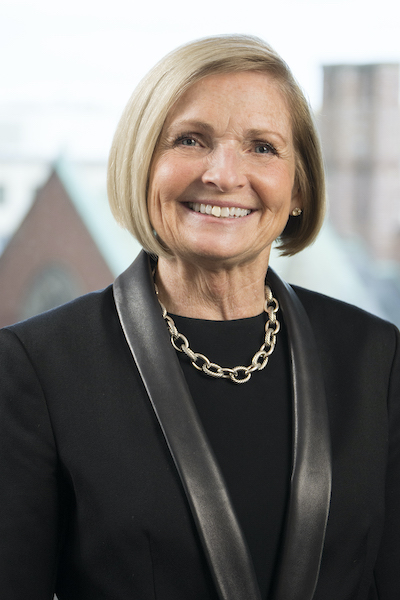
Connie Cahill has worked in public finance for her entire nearly four-decade career. Her love for the field comes from what financing goes to build, such as affordable housing and public educational institutions – which are the kinds of projects Cahill has helped finance throughout New York.
A favorite project of hers has been improving the infrastructure of a small special act district that had a school building in poor condition. Although the project faced a number of financial challenges, the passion of the district’s Board of Education president drove Cahill to continue to fight for changes. “It was really an honor and a privilege to get to work with her and see what she was doing because she cared so much about the children at the school,” Cahill says. “And that’s the kind of projects I’ve gotten to do all my career. There’s always somebody that's the driving force on the client side.”
Cahill became the law firm Barclay Damon’s first female managing partner in 2021. When she first started out in public finance, she would often be the only woman in a meeting. Since coming on at Barclay Damon 15 years ago, she has helped bring other women into the field. “The change in 35 years has been absolutely remarkable,” Cahill says. “It is a rare call or a rare closing that I’m the only woman. It’s much more common that half or more of the people sitting around the table in a public finance action are women.”
Trientina Campbell
Director of Environmental Health and Safety/Emergency Preparedness Coordinator, Richmond University Medical Center

Since 2005, Trientina Campbell’s job has been to ensure that Richmond University Medical Center, one of Staten Island’s two major hospitals, is well prepared to weather any kind of emergency. She views Staten Island as a “forgotten city” that needs to support and uplift itself, pointing to a major crisis that the borough had to confront in 2012. “As time progressed and Hurricane Sandy came around, we realized how much, how vulnerable the entire community is,” Campbell recalls. Her medical center was able to provide aid to the entire community by collaborating with different stakeholders in the wake of Sandy ravaging the area.
Last year, as COVID-19 started spreading across New York, the local coalitions that were developed on Staten Island in 2012 had become rock solid. Campbell kept her community informed on a daily basis and encouraged conversations between stakeholders about what could be done for struggling residents. Because of these proactive efforts to facilitate collaboration, Campbell says the local coronavirus response went smoothly.
Before Campbell moved to Staten Island, she didn’t even know it existed. She describes the island as isolated from New York City while having its own welcoming character. She appreciates the sense of community built on peer-to-peer support, and now feels devoted to the borough. “I've worked in Manhattan and I've worked in Brooklyn, but I was not used to people who you don't know … actually being courteous, just being nice, holding the door for you and letting you walk through it,” Campbell says.
Dana Carotenuto Rico
Deputy Secretary for Legislative Affairs and Policy, Gov. Andrew Cuomo
For Dana Carotenuto Rico, serving in the Cuomo administration is the “perfect interaction” of two things she loves – collaborating with elected officials, and helping them advance the administration’s agenda. It’s about filling “that communication gap, and on the policy side being able to really champion and fight for key policy agendas that the governor lays out in his budget,” she says.
Carotenuto Rico, who started out as a staffer for then-state Sen. Jeff Klein, says she values her early days working in state government for giving her the opportunity to travel across the state and directly help her own community, especially in the fight to help people keep their homes amid the foreclosure crisis.
Now, as the state’s deputy secretary for legislative affairs and policy, a typical day includes handling myriad requests and calls – from calls with her colleagues to communicating with regional counterparts to interactions with elected officials and advocacy groups. She says having these conversations moves the ball forward.
“It starts at about 6:30 a.m., going through clips, seeing if there are any issues that have come up from advocacy groups or elected officials,” she says. “We’re trying to find a balance between being reactive and proactive.”
During the COVID-19 pandemic, Carotenuto Rico says she began to understand the selflessness of government. “It’s not for the accolades or pat on the backs,” she says. “We’re trying to solve problems for everyone and asking how we can help the highest number of people possible.”
Susan Chin
Assistant Director, Political Action and Legislation Department, District Council 37
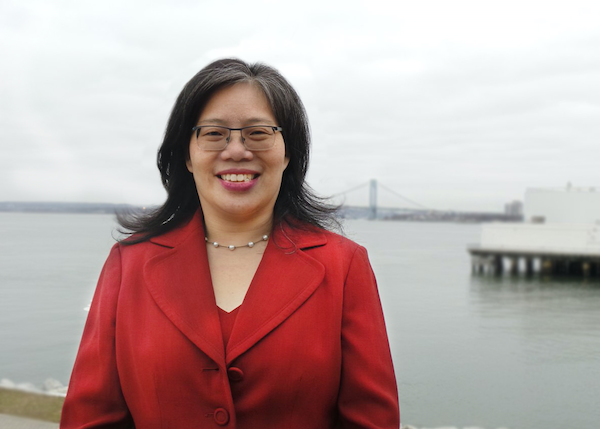
Susan Chin has been lobbying City Hall since 1995 on behalf of District Council 37, New York City’s largest public employee union, and on behalf of the city workers, ranging from accountants to zookeepers to crossing guards, that the union represents. In her current role, Chin focuses on the legislative and budgetary priorities of DC 37 on the city level.
One of the biggest issues she worked on was the Play Fair for Parks campaign, which resulted in 100 maintenance workers and 50 gardeners represented by DC 37 being permanently hired by the New York City Parks Department. Another project she worked on was providing universal free lunch across New York City public schools. The program gives free lunch to all students regardless of their ability to pay. The push was prompted by low-income students reporting that they had been bullied for getting free lunch. Chin and her team met with the New York City Council to press for free lunches for all students, citing parental testimonials detailing their children’s experiences of going hungry rather than taking free lunch because of the stigmatization.
One of the biggest battles Chin is waging now is for higher pay for emergency medical technician workers, whose value has been highlighted by the COVID-19 pandemic. “The majority of our people are just city workers,” Chin says. “They've been on the front lines, they've been doing what they're supposed to do, putting themselves at risk, and their family at risk by going out there.”
Willing Chin-Ma
Deputy Executive Director, Grand St. Settlement
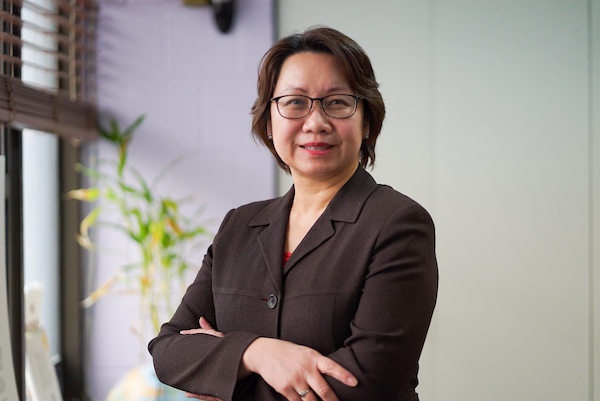
Willing Chin-Ma has been advocating for people since her high school days, when she volunteered to translate for elderly patients interacting with doctors and nurses. She carried that service into her undergraduate and graduate studies at Hunter College and New York University, respectively. Then in 1998, she began working at Grand St. Settlement, where she advocates for children and elders by expanding early childhood care and education programs and helping low-income seniors acquire affordable housing.
When the COVID-19 pandemic hit, the nonprofit organization faced significant challenges. In March 2020, the city closed public schools, forcing Grand St. Settlement to operate its early childhood programs online. “What we did was that we engaged and trained parents to be like many teachers at home,” Chin-Ma says. She and her team provided resources for the parents such as school supplies, diapers and formula. For seniors, they created a food giving system through which they have distributed up to 500 food bags per week since last March, with the program continuing to today. “Just thinking back it brings tears to my eyes,” Chin-Ma says.
Chin-Ma’s parents are immigrants from Hong Kong. She came to New York as a toddler and wants to give others the opportunity she had in America as an immigrant, despite, as she says, the American dream being in a crisis right now. “My internal love for other human beings and making sure that the ones that don’t have a voice, have a voice, that inspires me,” Chin-Ma says.
Catherine Fisher Collins
Board Member, New York State Board of Regents
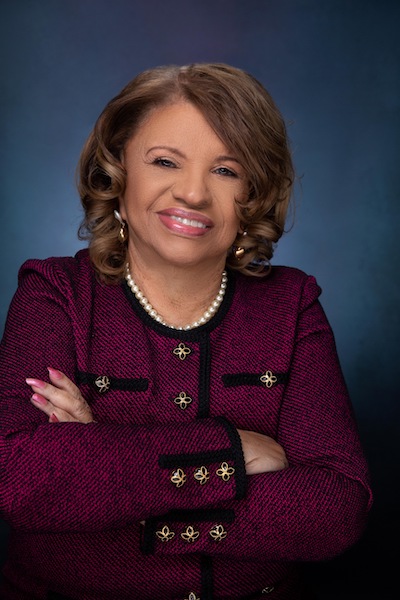
When Catherine Collins started to pursue nursing in the 1960s, her high school advisor told her, “You can’t go to nursing school, you have to be a secretary,” Collins recalls. Yet today, Collins is a nurse – and a renowned educator and author. An associate professor at State University of New York Empire State College, Collins also works on developing educational policy as a board member on the New York State Board of Regents.
Looking back at her career, Collins says she is proud of her time working with Jack and Jill of America in Washington, D.C. She once noticed a woman with her baby and young child on a step when she was walking to get lunch. “I was upset about it because here we are in our nation's capital with people in Georgetown sitting out there on the street,” Collins says. “All you had to do is look out your window and you could see these homeless people and children that were out there.“ Collins responded by organizing a project called Love and Hope for Homeless Children to deliver supplies such as food, diapers, money and clothing to children living in shelters in the area.
Collins has written a number of books detailing the health and societal challenges faced by African American women and also hosts the Women’s Health Radio show based in Buffalo. She has faced her own challenges as an African American woman, but has led the way for many as a mentor and helping hand. “Women, they’re almost secondary citizens,” Collins says. “We really need to pull folks along as we go up the ladder.”
Onida Coward Mayers
Vice President, MirRam Group
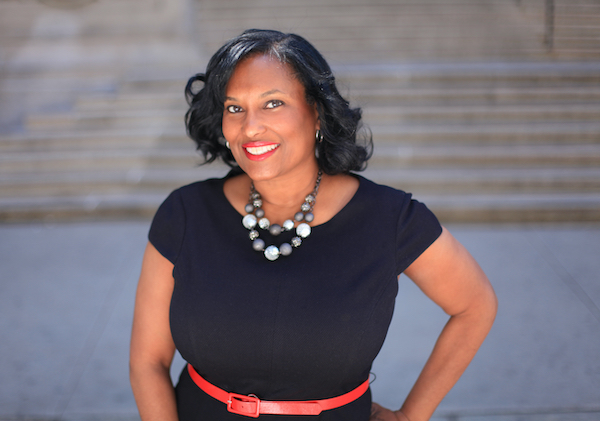
Storytelling is a throughline for Onida Coward Mayers. Now vice president of the MirRam Group – an independent consulting firm offering an in-depth understanding of New York’s political, corporate, labor and nonprofit landscapes – she got her start at Time Warner after graduating from the State University of New York at Buffalo with a degree in communications and broadcast television. Not long after that, she started Brooklyn Community Access Television, a nonprofit community network, where she learned how to effectively articulate local issues.
“It’s all about understanding the issues of other people and how to better tell a story,” Coward Mayers says. “There are many ways to tell a story. The question is, how are you going to tell someone's story?”
Coward Mayers, who was born in Panama with Jamaican ancestry and raised in Brooklyn, was recruited to lead the voter outreach efforts under Mayor Michael Bloomberg’s administration as the director for the Voter Assistance Commission at the New York City Campaign Finance Board. As a media executive and top-notch communicator, Coward Mayers was ideally suited to the challenge of increasing voter participation rates.
After she launched NYC Votes with the CFB, she says voter turnout increased significantly, her team registered almost 10,000 students, and the city placed second in the country for highest number of people registered in a single day. “Really what it was, again, at its core, is helping people tell their stories and get the results that they need,” she says.
Lisa Daglian
Executive Director, Permanent Citizens Advisory Committee to the MTA
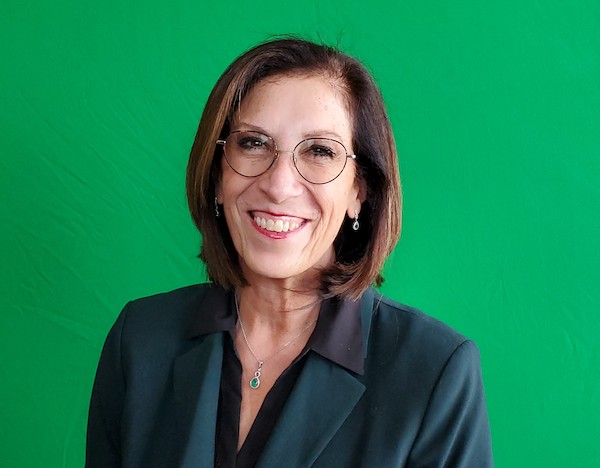
Over the past 35 years, Lisa Daglian has lent her communication skills to the Manhattan Borough President’s Office, the American Cancer Society, and the New York Metropolitan Transportation Council. And since 2018, she has continued to work at the intersection of media and public policy as the executive director at the Permanent Citizens Advisory Committee to the Metropolitan Transportation Authority.
“For me, it’s all about the intersection of media and community policy and the effects they bring to bear on each other and people’s lives,” Daglian says of her career. “It’s amazing what we can do when people come together and work to effect change.”
As the MTA struggles to stay afloat despite plummeting ridership due to the coronavirus pandemic, Daglian has continued to speak out on behalf of commuters who rely on public transit to get around. In recent weeks, she has criticized the Long Island Rail Road for its service cutbacks, which were subsequently reversed, and applauded efforts to speed up New York City’s subways.
Daglian credits her close professional network with being both an anchor and a propelling force in her career. “There are some very strong women I’ve met over the last 30 years,” she says. “And we know we can turn to each other for professional assistance and help in addition to all the personal stuff. Knowing that there’s that group of people for whom there are no stupid questions is just so helpful.”
Elizabeth Daitz
Executive Director, Strategic Initiatives, New York City Police Department
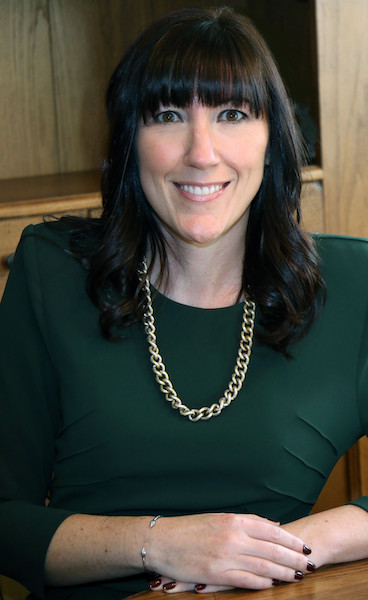
Elizabeth Daitz had never pictured herself sitting in the highest level of government when she was selected to serve as a White House fellow in 2019. As the daughter of working-class parents, the first-generation college educated Daitz says doing good work isn’t about money or recognition – it’s about showing up and paying it forward.
“I’m from a small town on the South Shore of Long Island and I started working from a young age to pay my way through college,” she says. “No matter where you come from and what you look like, your success is defined by your character.”
Daitz originally worked as a litigator for the New York City Law Department, representing different stakeholders within the criminal justice system – which is when she became increasingly interested in public safety. “It was really after Superstorm Sandy, when I spent a lot of time with first responders, that I jumped at the chance to join the NYPD,” she says.
Serving as the first director of civil matters for the police department, Daitz was asked to direct the Police Reform and Reinvention Collaborative following her tenure as a White House fellow. As executive director of strategic initiatives, she’s working to design and implement processes to review already existing plans for police reform, soliciting recommendations from thousands of different people to lead the conversation on police accountability, transparency and justice. “I want to be an honest broker,” she says, “to bring different voices together in order to find common ground.”
Katy Gaul-Stigge
President and CEO, Goodwill Industries of Greater New York and Northern New Jersey
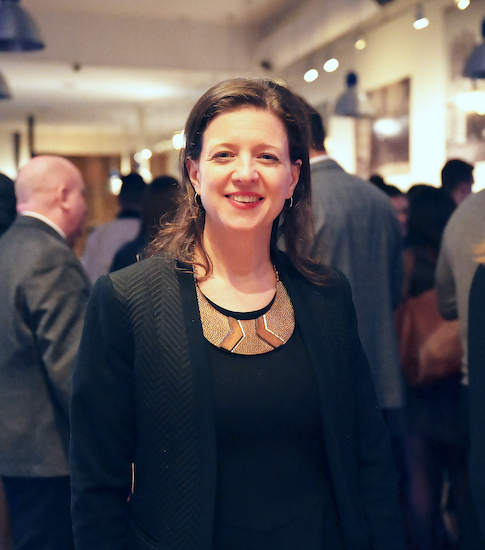
Fighting injustice has long been a priority for Katy Gaul-Stigge. While leading Goodwill Industries of Greater New York and Northern New Jersey, she carries out that mission while overseeing its iconic thrift stores and job training programs.
“We can't leave anyone behind if we want to live in a dynamic city and a community where everyone's working and contributing,” Gaul-Stigge says. “Their economic vitality shouldn't be left on the sidelines because of barriers. We’ve really focused on being a bulldozer for barriers and moving whatever's in the way for folks.”
The California native credits her progressive Christian upbringing and education with her early interest in direct service work. After graduating with a degree in religious studies at Mount Holyoke College, she started working at homeless shelters in Austin, Texas, with Habitat for Humanity. A few years later, she moved to New York City to attend Columbia’s School of Social Work. Throughout the next 12 years, she worked her way up from a policy analyst position at the Department of Homeless Services to executive director of the Mayor’s Office of Workforce Development. Along the way, she’s come to see nonprofit and government work as intricately related, the former determining what works best for local communities and the latter bringing it up to scale. For Gaul-Stigge, the current moment has provided optimal conditions for that kind of an approach. “We don't want to just return to 2019; we need to do better,” Gaul-Stigge says. “I look forward to participating in that process.”
Marla Gayle
Managing Director, Skidmore, Owings & Merrill
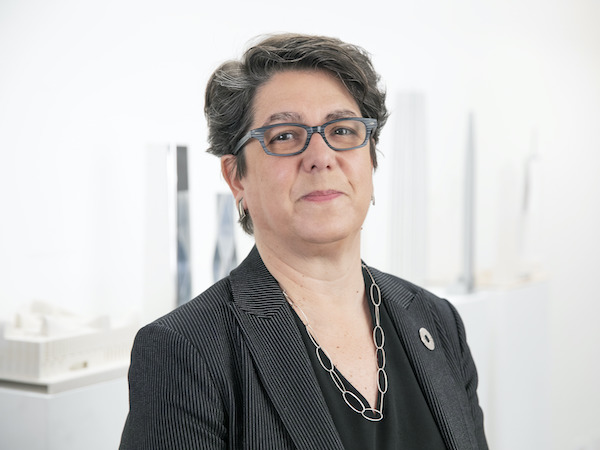
Sometime in the 1910s, Marla Gayle’s grandfather – a ship designer from Odessa – immigrated to the United States and opened up an architectural practice. The two never met, but almost 100 years later, Gayle inherited his old drafting table after graduating from the School of Architecture at Syracuse University. Since then, she’s become an expert at big infrastructure projects, completing one after another across the Americas, China, India, New Zealand and the Middle East.
Some of the Long Island native's first projects were the redevelopment of the Times Square and Herald Square subway stations. She likes to say that she then “moved above ground” and began airport redevelopment, which has taken her around the world. At Skidmore, Owings & Merrill, where she was named a managing director in 2018, Gayle worked on the $1.6 billion construction of Moynihan Train Hall, which was unveiled in January after 23 years in the making.
“My whole career has really been about public architecture,” she says. “I've never done any kind of private development work. For me, it's really about improving the infrastructure of cities.”
Moynihan Train Hall, an “adaptive reuse” project that repurposed the landmarked James A. Farley Post Office, is not unlike other ones Gayle has managed. “It gave it a second life,” she says. “This is the most sustainable kind of architecture. It saves a tremendous amount of materials, energy costs and transportation. It's taking something that's been there for 100 years and reimagining it into something else.”
Marsha Gordon
President and CEO, Business Council of Westchester
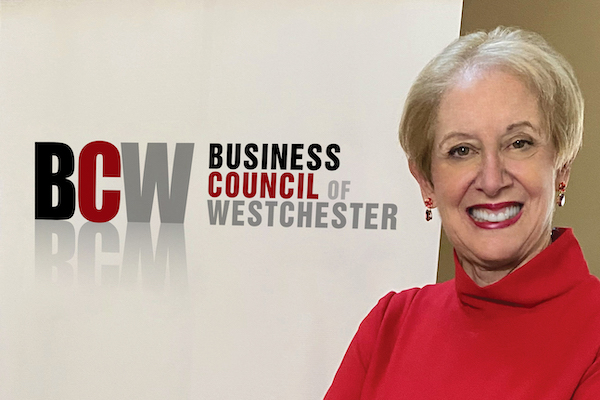
When she was young, Marsha Gordon was unsure where her career would take her. A piece of advice from her parents always came in handy: There was nothing she couldn’t do.
After graduating with a degree in English at Brooklyn College, she bounced around the nonprofit sector before being hired as membership director at the Greater Southern Dutchess Chamber of Commerce. Since then, Gordon has completed a master’s degree in business administration from Marist College and a doctorate degree in business, management and marketing from Pace University, and has amassed more than 25 years of community, business and leadership experience. Throughout her career, attentiveness has been her most useful asset.
“I work hard on being a very good communicator,” she says. “And that not only involves talking but listening, and really understanding what people want.”
The Rockaways native has spent the last two decades as the president of Westchester County’s largest business membership organization – the Business Council of Westchester. As its leader, she works tirelessly to ensure the prosperity of the county’s small businesses, to uplift members of the community and to be a resource for both groups.
“We believe that if the community is prosperous, members will be profitable,” she says. “And we accomplished that other piece by being very laser focused on who our members are, what their needs are, how we can help them, how we can connect with them, how we can advocate for them, and how we can troubleshoot for them.”
Vasantha Kondamudi
Executive Vice President and Chief Medical Officer, The Brooklyn Hospital Center
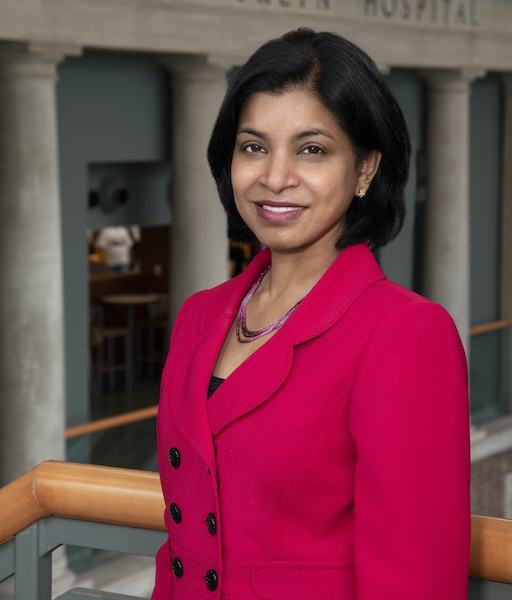
Throughout her career, Dr. Vasantha Kondamudi has been an effective and clear-headed crisis manager. As the executive vice president and chief medical officer at The Brooklyn Hospital Center, she courageously led her team throughout the numerous challenges of the COVID-19 pandemic while prioritizing the safety and well-being of her staff and patients. Along with the senior administrative team, she worked to expand the hospital’s bed capacity, ensure adequate supplies of protective equipment, and staff the testing tent outside the emergency department.
“Throughout career challenges, I try to do my best,” she says. “They just bring that energy out of me. I’m never scared of (them).”
Kondamudi never considered a career path other than medicine. After attending the prestigious Christian Medical College in Vellore, India – where she’s originally from – she spent some time training in obstetrics and gynecology at the University of the West Indies in Jamaica. Once she arrived in New York City, Kondamudi pivoted toward family medicine and geriatrics, completed multiple fellowships, and received a master’s degree in medical management from the University of Massachusetts Amherst. While at TBHC, she has held several roles, graduating as chief resident in 1997 and now serving as executive vice president and chief medical officer.
This past year was “humbling,” Kondamudi says. “I think challenges and myself walk hand in hand,” she adds. “You just have to go through it. You have to face it, you can’t escape. And believe it or not, when you are facing it, it’s actually not that bad.”
Pamela Lee
Senior Vice President of Operations, Erie County Medical Center Corporation
Pamela Lee’s decision to attend the University of Iowa was twofold: The school had offered her an athletic scholarship for its women’s basketball team and it had one of the best nursing programs in the country. While she no longer plays, Lee went on to become senior vice president of operations at the Erie County Medical Center, overseeing a number of the hospital's support departments and its nursing home.
“I've always wanted to be in a field where I could help people,” she says. Since graduating with a bachelor's degree in nursing, Lee realized she needed experience on the accreditation side. She accepted a job as associate director in the department of standards at The Joint Commission, which catapulted her into the world of quality and compliance. She obtained an MBA and a Master of Science in nursing administration at the University of Illinois at Chicago. Lee has since then served in several executive positions focusing on operations, patient safety and quality in Illinois, Missouri, Washington, D.C., and now Erie County.
Throughout her career and especially during the coronavirus pandemic, Lee has learned that collaboration and partnerships are key. “This past year definitely serves as a testament to how important health care is,” Lee says. “From a COVID standpoint, this has been more than just a drill ... it's really been a way to test the limits of the organization because we've been able to do this for such a sustained period of time.” Reflecting on collaboration, she adds, “To do it in a way where we’re satisfied, shows how our team can come together for a good cause.”
Kristin Malek
Director of Business Diversity, CDW
Raised by a single mother in Southern Illinois, Kristin Malek was instilled with a very strong work ethic at a young age. She carries those values into her job as the director of business diversity at CDW, an international technology services company.
“I learned the value of a dollar, the value of having a job,” she says. “It’s really the foundation of the work I do today. The more impactful sourcing and procurement we include, the more jobs we create, the more diverse workforce we’ll have.”
Malek graduated from Western Illinois University with a degree in business and human resources management, thinking that she would travel the world as a businesswoman. But after giving birth to her daughter Katelynn, who has Down syndrome, Malek’s priorities changed. She says that ever since, Katelynn has been writing her story.
She went on to serve as the chief operating officer at GiGi’s Playhouse Down Syndrome Achievement Centers, a senior executive consultant at Changing the Face of Beauty, and a board member at Chicago Minority Supplier Development Council. Since joining CDW almost four years ago, Malek has been an advocate for minority, women-owned, veteran-owned, disability-owned and other disadvantaged small businesses.
“We're not going to spend our way to justice,” says Malek, who was elevated to her current role at CDW in December. “It's not transactional. It has to be a growth initiative. … (If) we're spending millions of dollars, we have to make sure that there is a diverse supply chain embedded in the system.”
Melva M. Miller
CEO, Association for a Better New York
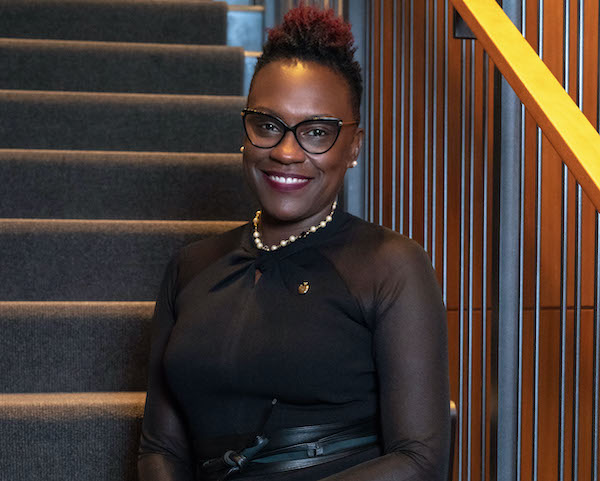
“It consists of a lot of Zoom calls,” Melva Miller says, laughing, of her average day running the Association for a Better New York, a leading civic nonprofit. Between holding meetings, making presentations and running programs, Miller is working overtime to ensure a more equitable recovery of workforce and job development is on the way for everyday New Yorkers.
“We’re looking through a lens of diversity and equity – some of these key buzzwords are coming up a lot – ones that I’ve been working on for my entire career,” she says. “We want to be inclusive about the remedies that help the city bounce back.”
With a background in social work, Miller is focused on community organizing, planning and development. She emphasizes the need to have residents participate in the revitalization of their own communities and aims to address structural obstacles in these communities. She’s also working toward completing her doctorate in social welfare at the Graduate Center of the City University of New York.
Miller previously served as deputy borough president of Queens and led ABNY's Census 2020 initiative, where she sought to boost participation and fuel community development. For her, the work is personal. “It’s about seeing the fruit of my labor and seeing it in the eyes of others,” she says. “Seeing someone that looks like me and on a career trajectory that I'm on, being a social worker in a nontraditional space, gives me gratification and hope that people will follow a similar path.”
Angela Pinsky
Head of Government Affairs, Google New York
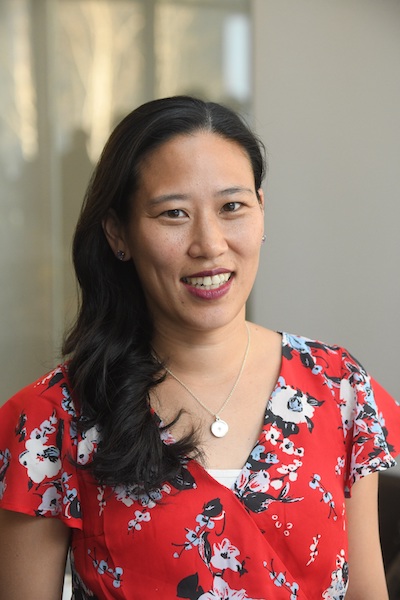
Angela Pinsky has spent most of her career at the intersection of the public and private sectors. This past year she has served as Google’s regional government affairs manager for New York and New Jersey, connecting the tech giant with local communities and spearheading projects that provided COVID-19 aid, job training, and small- and medium-sized business grants. During this time of crisis, Pinsky believes that the company has a duty to be a “good neighbor,” prepared to address equity and economic opportunity.
“I was going into the public sector after 9/11,” she says. “I was here during the blackout during Hurricane Sandy … (and) the financial crisis. Each one of those is similarly confusing and heartbreaking. But the question is, how do we make these moments of transition opportunities to address public policy?”
Pinsky took after her mother, a small-business owner and pharmacist, and worked in pharmaceutical clinical trials after graduating from Johns Hopkins University with a public health degree. She pivoted to urban planning after earning a master’s degree in the field from New York University. Since then, Pinsky has worked as deputy chief of staff to the deputy mayor for economic development and rebuilding under Mayor Michael Bloomberg and as executive director of the Association for a Better New York.
“Experience and age come in handy,” she says. “There is a tendency to think, particularly in the public sector, that you have to come up with a whole solution. But really, it's about how government and policy intervene in order to maximize the benefit.”
Dalvanie K. Powell
President, United Probation Officers Association
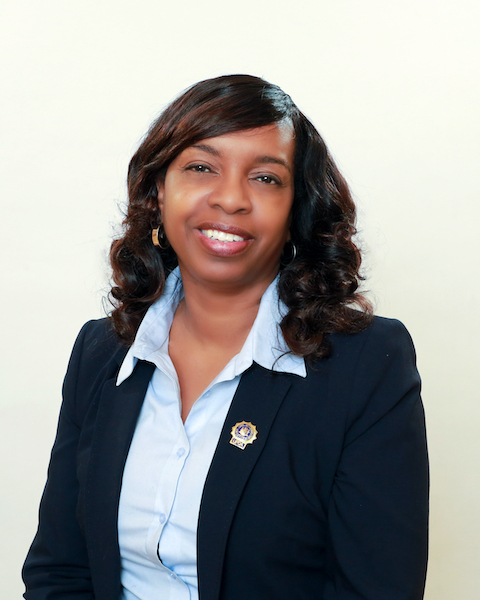
With increased national attention on criminal justice reform, Dalvanie Powell says she hopes the conversation will prompt the expansion of New York City’s Department of Probation.
“I want the probation officers in New York City to be recognized for the work that they do, and when they talk about criminal justice reform, that we are part of that conversation,” says Powell, who is the first Black woman to serve as president of the United Probation Officers Association, which oversees over 800 members.
Having worked as a probation officer since graduating from John Jay College of Criminal Justice in 1987, Powell quickly began rising within the union, starting as an advocate, and progressing through roles including executive representative of Manhattan, secretary, vice president, and eventually president. “I just love the whole concept of remaining in an environment where I can make a difference in somebody’s life,” says Powell, who describes probation officers as the “unsung heroes of the criminal justice system.”
While working as a probation supervisor at the Bronx County Family Court, Powell spearheaded a creative arts program, after she says she noticed a lot of talent among the children. And on the other end of the age spectrum, two years ago, Powell started a retirees association to show appreciation for retired probation officers.
Working on behalf of her members, Powell says her current objective is to increase officers’ salaries and improve members’ pensions to a level that is more comparable with other law enforcement officials.
Bianca Rajpersaud
Associate Director of Government Relations, Davidoff Hutcher & Citron
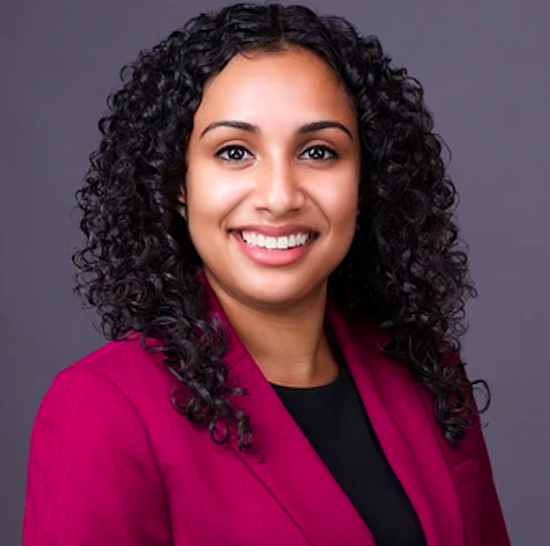
Raised in Staten Island, Bianca Rajpersaud attributes much of who she is today to her home borough. “I wouldn’t be who I am if it wasn’t for that Staten Island tough mentality,” says Rajpersaud, an associate director of government relations at Davidoff Hutcher & Citron.
Although she left Staten Island to attend the State University of New York at Albany, Rajpersaud returned to her home borough after graduating to serve as the director of constituent services for Staten Island Assembly Member Michael Cusick. A year later, Rajpersaud became director of communications, focusing on media relations and legislative matters.
Prior to joining Davidoff Hutcher & Citron, Rajpersaud worked for the Association for a Better New York as a communications and events manager. But she says she missed “being a part of the action,” and a few months later moved to her current government relations role.
As a lobbyist, Rajpersaud focuses on New York City Council budgetary issues, as well as New York state and federal regulatory issues. Some clients she has worked with include Facebook and the Yemeni American Merchants Association. “I realized that there were so many organizations that really didn’t have a clear understanding of government and that was something that came naturally to me,” says Rajpersaud regarding her switch to the private sector.
In the future, Rajpersaud says, she wants to be involved with ensuring that there are adequate mental health services on Staten Island. Outside of lobbying, Rajpersaud serves as the district leader for the 63rd Assembly District on Staten Island, and is the current president of the North Shore Democratic Club.
Maureen J. Reidy
President and CEO, The Paley Center for Media
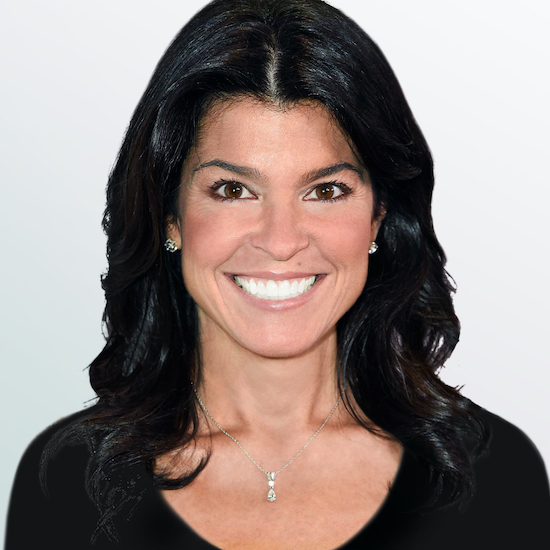
Despite challenges posed by the coronavirus pandemic, the Paley Center for Media expanded its programming with the launch of its inaugural Hispanic Heritage Month exhibit last year, along with its quarterly series focusing on rising anti-Semitism starting in January. The center will open its inaugural Pride Month exhibit later this year.
“We are uniquely positioned to convene important conversations to shine a light on these powerful societal issues,” says Maureen J. Reidy, who has led the center since 2014.
Reidy began her career at PricewaterhouseCoopers as an accountant for its entertainment and media practice. After the 9/11 terrorist attacks, Reidy joined the Bloomberg administration, running NYC Big Events and eventually serving as chief marketing officer.
Returning to the private sector, Reidy served as the chief operating officer of IMG’s fashion group, and then as CEO of The Argus Group, a full-service strategic marketing agency, before joining the Paley Center as its chief marketing officer.
Over the past eight years, Reidy has spearheaded the creation of The Paley Honors, an event focusing on the social impact of television, which goes to fund the center’s special collections. And since the start of the coronavirus pandemic, the center launched Paley at Home on its YouTube channel and signed a partnership with Verizon to expand access to its content.
At the end of February, The Paley Center announced the launch of its paid internship program, which Reidy says has been a key focus of hers in order to support the next generation of visionary television professionals.
Jennifer Richardson
Senior Vice President, Patrick B. Jenkins & Associates
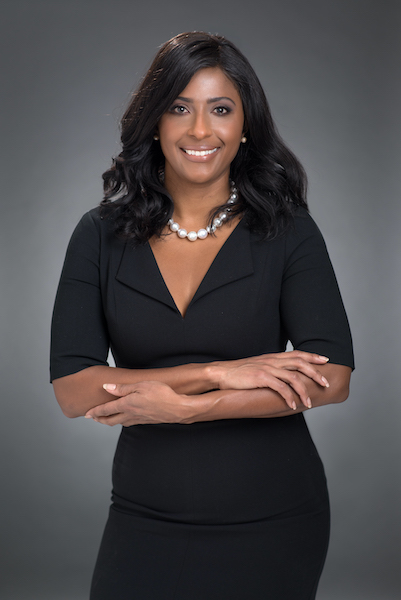
With increased focus on criminal justice reform and outrage against police brutality, Jennifer Richardson points to this past summer as having heightened her work within the field. “All the marches and the protests, I think it brought a spotlight to many of the issues that myself, and my clients, and other advocates have been pointing out,” says Richardson, senior vice president of Patrick B. Jenkins & Associates.
In her current role, Richardson has advocated for the creation of a prosecutorial conduct commission and pushed successfully for state legislation making police disciplinary records public.
Prior to joining the lobbying firm led by Albany insider Patrick Jenkins, Richardson worked with the New York City Department of Education, where she served as director of state legislative affairs and worked on the city’s universal pre-K initiative. Later, Richardson joined Mayor Bill de Blasio’s administration as deputy director for the Office of State Legislative Affairs.
“It makes you a better lobbyist when you can understand city politics and City Council, mayor’s races,” Richardson says. “All those things can weigh heavily on what’s going on in Albany, and Albany can weigh heavily on what’s going on in those races.”
In addition to her current role, Richardson serves as president of the Capital District Black and Hispanic Bar Association – a position that she has held for the past five years. Outside of work, Richardson says she hopes that when the COVID-19 pandemic is over, she can go back to doing what she really loves, which is running for charities.
Tammy Rivera
Council Representative, New York City District Council of Carpenters
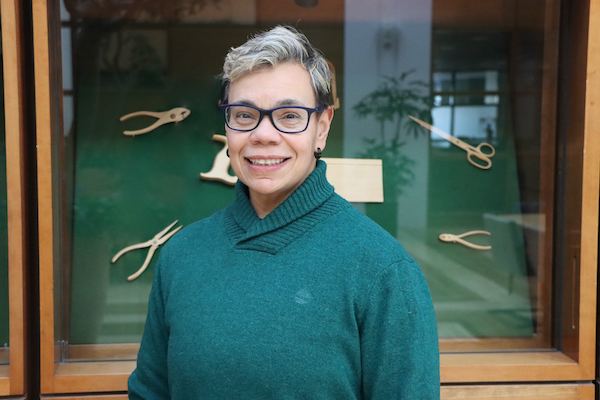
Although Tammy Rivera once dreamed of being a singer in a rock band, she decided to become involved with the United Brotherhood of Carpenters in 1994 after attending a free program organized by Nontraditional Employment for Women. She soon joined the union through an apprenticeship, taking advantage of every class that was offered.
“I felt like going to work was my playground,” says Rivera, who eventually became a certified shop steward – a role she held for six years. “It was a great experience.”
Working in a male-dominated industry, Rivera became the first woman hired as a council representative for the New York City District Council of Carpenters in 2009, a role in which she has focused on mentoring other women. Last year, Rivera became the first woman to run for the council’s executive position.
“If you know who you are and you know your worth, and you carry yourself properly, you will be respected,” says Rivera, who has also served as the chair of her local Sisters in the Brotherhood committee, and is now one of three women on the NYCDCC council. As a council representative, Rivera says she carries an inflatable rat in her pickup truck, an aid in the fight for workers’ interests and labor legislation.
Currently, Rivera is a board member of Nontraditional Employment for Women, where she has worked as an instructor for the organization’s carpentry workshop, and serves as a chair for New York City Career and Technical Education’s Construction and Sustainability Commission.
Laura Rossi
Executive Director, Westchester Community Foundation
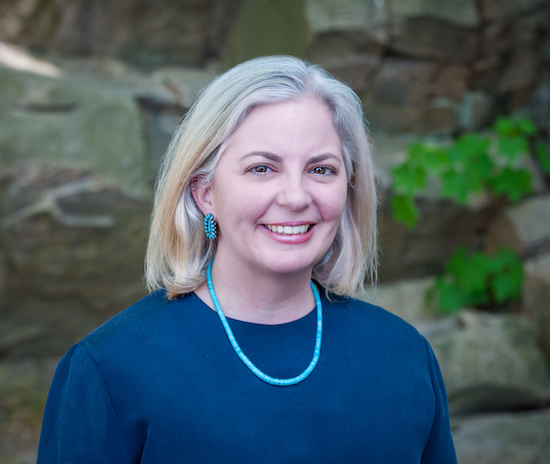
Before joining the Westchester Community Foundation, Laura Rossi was a lawyer with a passion for volunteerism. “As a lawyer I saw that there’s only so much you can do to make real change, particularly with social justice,” says Rossi, who in her current role has recently overseen the growth of the foundation’s social justice portfolio.
Over time, she learned more about what was happening at the local level and realized that that was what she wanted to engage with.
Rossi began her career in philanthropy as a program officer with the Westchester Community Foundation. Now the organization’s executive director, Rossi says she works alongside the government, occasionally pushing and leading initiatives. In Westchester County, the foundation is the largest funder on environmental endeavors. “Philanthropy is there, often really ahead of the conversation and can help guide and lead the conversation … and that excited me,” says Rossi.
During the coronavirus pandemic, Rossi says, the foundation has been able to raise money and deploy funds to the community, while still remaining on track with its regular grant-making work for nonprofit organizations. In the future, Rossi plans to look more closely at the organization’s health care portfolio, specifically focusing on behavioral health.
Outside of the foundation, Rossi serves as co-chair of the board of directors of Sustainable Westchester, and as a board member of both New York Funders Alliance and Support Center. In 2019, she was appointed as a member of the Westchester Housing Opportunity Commission.
Molly Scherrman
Chief Operating Officer, Kivvit
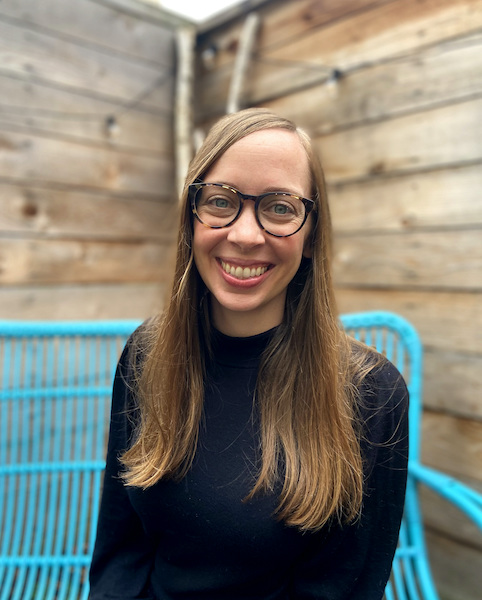
Before moving from Iowa to New York in 2016, Molly Scherrman worked on a number of political campaigns as a fundraiser, organizer and manager, including for former Iowa Sen. Tom Harkin and former Iowa Governor Tom Vilsack, who now serves as secretary of agriculture. And Scherrman’s move to New York was prompted by her work with Hillary Clinton’s presidential campaign, where she served as the Iowa deputy director for the Iowa caucuses before getting promoted to be the national director of state surrogates.
“I’ve always found a passion in sort of either aligning with causes or candidates, when it’s been on campaigns that are really fighting for the right thing,” Scherrman says.
Taking her background in campaigning with her, Scherrman joined Kivvit, a public affairs and communications firm, and became the general manager of the organization’s New York office, before taking on the challenge of chief operating officer.
With Kivvit, Scherrman has partnered with the New York State of Health to enroll uninsured New Yorkers in health care coverage through its open enrollment campaign, by strategically using data to target potential enrollees. Scherrman has also worked on renewable energy initiatives and alongside labor unions to engage members.
“Looking at data and knowing who you need to target to get to that ultimate goal, and how you need to adapt to reach different goals for different causes is really kind of the skill set I learned early on and was able to apply to everything,” Scherrman says.
India L. Sneed
Associate, Greenberg Traurig
[[{"fid":"14416","view_mode":"default","fields":{"format":"default"},"link_text":null,"type":"media","field_deltas":{"32":{"format":"default"}},"attributes":{"height":600,"width":410,"class":"media-element file-default","data-delta":"32"}}]]
With COVID-19 raging through the country’s prisons, India L. Sneed took on a pro bono case in May of 2020 and successfully worked to secure compassionate release in January for a man serving time in Kentucky. “It is one of the biggest accomplishments of my legal career,” says Sneed, who has been practicing law for more than seven years.
While taking coursework in Black studies in college, Sneed says she realized that she wanted to create positive change for communities of color, making sure there is greater equity, particularly with respect to education and the criminal system.
Prior to joining Greenberg Traurig as an associate, Sneed began her career in the public sector, working with the New York City Council as a lawmaker’s chief of staff, with the Kings County District Attorney’s office in the Civil Rights Bureau, and in Mayor Bill de Blasio’s administration as deputy executive director of the Mayor’s Action Plan for Neighborhood Safety.
In her current role, Sneed focuses on government relations, and has represented clients on election law matters, which during the 2020 general election included countering one of the federal lawsuits that then-President Donald Trump brought to court in Pennsylvania.
Outside of her day job, Sneed says she focuses on giving back through mentoring young people interested in going to law school, along with current law school students. “I feel like I bring a different voice into my practice of law, in that I am a Black woman with a pretty interesting background in terms of life experiences and professional experience,” Sneed says.
Leslie J. Snyder
Managing Partner, Snyder & Snyder
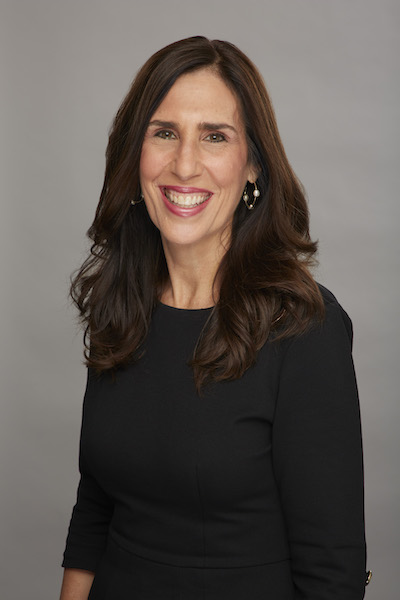
Joining forces with her husband, Leslie Snyder founded Snyder & Snyder LLP more than 30 years ago in Westchester County, drawing from her previous experience to develop a practice in real estate and telecommunications law.
With the firm, Snyder has worked to obtain leasing and permitting rights for the build-out of a national wireless carrier’s network infrastructure serving the New York metropolitan area, in addition to securing franchise agreements for the deployment of fiber optics and telecommunications facilities, among other projects. “The wonderful part about it is that you get to see something created and the telecommunications infrastructure is used for such an essential purpose,” Snyder says. “At the end of the day, something’s being created that is vital for our everyday life.”
When the coronavirus pandemic hit New York last March, Snyder says the firm was remote-ready because of its history of allowing for flexible working arrangements. “One of my most important achievements had been to foster the ability for work balance and to encourage women to be able to continue working, and that they can be effective leaders and effective attorneys, as well as being dynamite mothers,” says Snyder, adding that Snyder & Snyder LLP was one of the first firms in Westchester County to have a maternity policy.
Snyder is also a member of the National Association of Minority and Women Owned Law Firms, in addition to serving as a director of the Westchester Municipal Planning Federation and as a member of the New York State Wireless Association.
Amy Sugimori
Director of Research and Policy, 32BJ SEIU
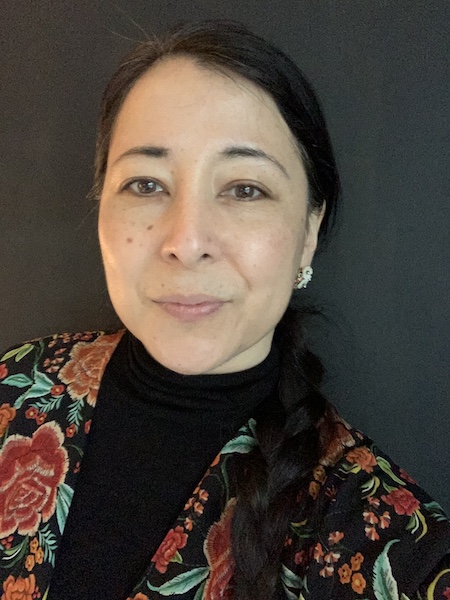
Amy Sugimori is now the director of research and policy with 32BJ SEIU, one of New York’s most powerful labor unions, but her first experience with supporting worker organizing was during her time as a staff attorney with the National Employment Law Project. “That experience really transformed my understanding of how you could be a lawyer in the movement,” says Sugimori, who focused on the intersections between immigration law and employment rights.
Later, Sugimori took her experience supporting immigrant workers into her role leading a nonprofit community organization called La Fuente. Through the organization, Sugimori worked to engage union members and community members together in their neighborhoods around issues of community concern. “How do you take that power, the consciousness, the solidarity, the political power that workers build by banding together, and apply that to other issues that people care about,” Sugimori says.
While driving 32BJ’s policy and research initiatives, Sugimori has advocated for the passage of the Healthy Terminals Act, which provides better access to health insurance for low-wage airport workers. She has also served as a board member with NELP since 2014 and is on the board of the Workers’ Center Of Central New York.
During the coronavirus pandemic, Sugimori has paid more attention to how her union engages members on federal advocacy. “I hope this is the moment,” she says, “when we turn around and say we need to make sure that we have policies that are appropriately valuing the work that people do.”
Linda Tempel
Executive Director of Developmental Disabilities Services, HeartShare Human Services of New York
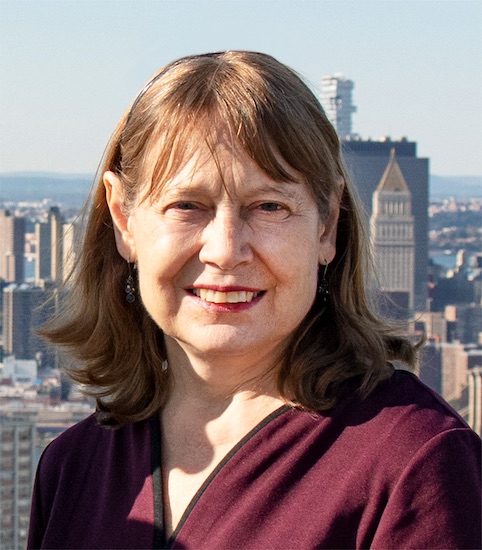
“It’s been 43 years and such a privilege,” says Linda Tempel of her work in disability services and advocacy. “I feel like I’ve kind of been part of the civil rights movement for people with disabilities.”
And she has.
While working toward a master’s degree in social work at Columbia University, Tempel spent a year at the state Department of Health and Mental Hygiene during a turning point in the fight for disabled New Yorkers’ rights. Following the closure of Willowbrook State School, which was exposed for its abuse of disabled individuals, she assisted in moving over 500 people into group homes.
This work eventually landed her at HeartShare, where she currently oversees each of the organization’s services for nearly 35,000 individuals with intellectual or developmental disabilities. “This year’s been painful and we had to learn a lot along the way,” Tempel says of the coronavirus pandemic’s impact on the HeartShare community. More than 80% of the residents in the organization’s homes have had their first dose of the COVID-19 vaccine and are now getting their second ones, she affirms.
Tempel considers herself lucky to have watched New York become “an entirely different and more accessible city” over the years. “There are now thousands of group homes equipped with direct support professionals,” she says. “These individuals aren’t paid a lot of money, but they’re the ones who are there with our people daily. They came during COVID, potentially risking their own health. They are our everyday heroes.”
Sara E. Visingard
Partner, Harris Beach
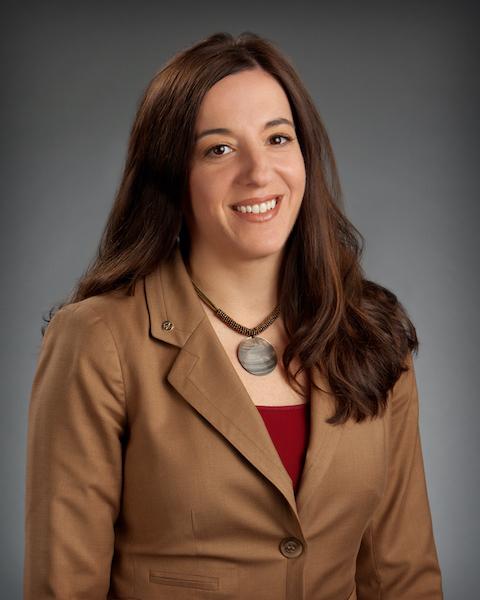
When Sara E. Visingard set off for law school, she never pictured herself working in labor law. Yet a labor class led to a job at a labor and employment firm and an eventual connection with a partner from Harris Beach. “The rest really is history,” she says, chuckling.
At Harris Beach, Visingard counsels public and private sector employers on diverse aspects of labor and employment law, and works with educational institutions concerning student and operational issues.
As president of the New York State Association of School Attorneys, Visingard recalls the difficulties school districts faced in the earliest days of the COVID-19 pandemic. “I was president-elect at the time, trying to just figure out how to navigate the executive orders and constant changes coming our way,” she says. “When things shut down, there were executive orders coming out by the minute. I’ve never been busier in my whole 16 years of practice.”
Visingard says the work she’s done this past year has required an all-hands-on-deck approach and an immense amount of creative thinking and collaboration in order to educate students within tight parameters. “In the past year, I've drafted more MOAs (memorandums of agreements) and worked collaboratively with unions to figure out how to still educate kids,” who have consistently been a priority.
“When I’m dealing with school matters, students drive me at the end of the day, especially when we’re dealing with tougher issues,” she says. “I’m doing all that I can to make sure they’re kept safe.”
Emily Whalen
Attorney at Law, Brown & Weinraub
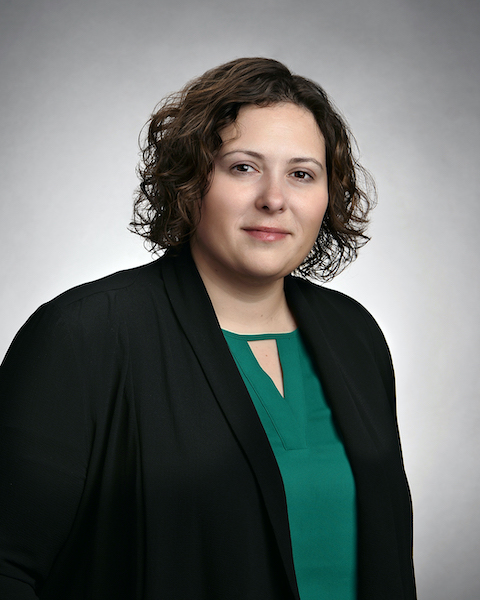
Being a good attorney means staying informed on all sides of an issue – and when it comes to New York state politics, there’s never a shortage of issues.
Emily Whalen knows this quite well. “I spend a lot of time reading the news,” she says. “It’s a big part of what we do to stay up to date on each of the individual issues impacting our clients.”
Whalen joined Brown & Weinraub after working in the nonprofit sector, in a private legal practice and as associate counsel in the New York state Senate majority counsel’s office. She says it’s in the Senate where she quickly learned the importance of educating everyday New Yorkers.
“Having the opportunity to help clients understand what’s going on and how it’s changed is rewarding,” she says. “There’s always something happening and that’s what makes it exciting – it’s really about helping people function in a world where things are constantly shifting around us.”
During the COVID-19 pandemic, Whalen’s work inside the state Capitol has been replaced by the world of electronic lobbying, which she thinks is partially here to stay. “You can get just as much done if not more,” she says. “It’s actually easier to communicate with not having to run back and forth between buildings.”
She’s also pleased to have witnessed the face of lobbying changing over the years. “I love to see all of the new, younger women working in offices,” she says. “It’s not just the old boys’ club anymore.”
Aja Worthy-Davis
Executive Director of Public Affairs, New York City Office of Chief Medical Examiner

“I've had to learn through the crack under the door, but it’s made me more determined to succeed on my own terms,” Aja Worthy-Davis says. “And I always loved politics – it’s how I was brought up.”
The daughter of New York City Police Department officials, Worthy-Davis grew up absorbed in the world of social justice. As a teenager, she cut her teeth working on local political campaigns in Central Brooklyn. Her political vision became clearest when she joined then-New York City Council Member Letitia James.
“The deeper I went into local politics, the less I was interested in the federal,” she says. “I felt that the city and state level were where you could have the most influence on people’s lives.”
Worthy-Davis gained invaluable experience from her time serving as director of communications for the Administration for Children's Services and deputy press secretary for health and social services under Mayor Bill de Blasio. Now at the New York City Office of Chief Medical Examiner, she does everything from updating criminal justice reporters to coordinating with film and television crews.
She has also navigated the difficulties of communicating details about the coronavirus to everyday New Yorkers. “When people were asking why there were freezer trucks outside of hospitals, I had to create the messages and figure out how to explain it in a way that calmed people’s fears but recognized the seriousness of it,” she says. “I feel an incredible amount of pride looking at what the agency’s done in this difficult time.”
Elisabeth Wynn
Executive Vice President, Health Economics and Finance, Greater New York Hospital Association
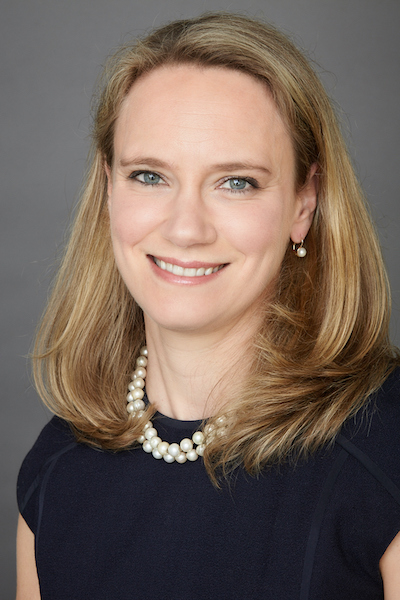
A path toward health care lobbying was paved early on for Elisabeth Wynn. As the daughter of health policy experts, Wynn’s interest in patient and provider advocacy came naturally. “It just made sense for me,” she says. “When I first graduated from college, I figured out I was really interested in the policy end of health care delivery.”
Twenty-one years into working for the Greater New York Hospital Association, it’s clear that something clicked.
“I feel very blessed and lucky to have landed at an organization for 21 years,” she says. “It’s honestly not unusual for (GNYHA), which says a lot about the organization. I’ve been lucky enough to be surrounded by several female executives who’ve supported me over the years.”
Wynn now oversees the organization’s financial operations issues, from revenue cycles to financial assistance policies and payer audits. Currently, Wynn’s day-to-day job is largely centered around COVID-19 relief – she advocated for federal and state aid and is working to support hospitals in their financial recovery process, dealing with budget and Medicaid financing, and confronting various federal, legislative and regulatory issues facing hospitals.
“A lot of my efforts are similarly focused on the efforts and corollary issues I’ve advocated for over the years,” she says. Bringing this experience to the table, Wynn says that the organization’s member hospitals are her main priority. “They’re really on the frontlines for patient care,” she says, “and we’re in that support role to put them in the best possible position.”
Correction: A previous version of this list incorrectly described Pamela Lee's career trajectory.
NEXT STORY: The 2021 Real Estate Power 100


